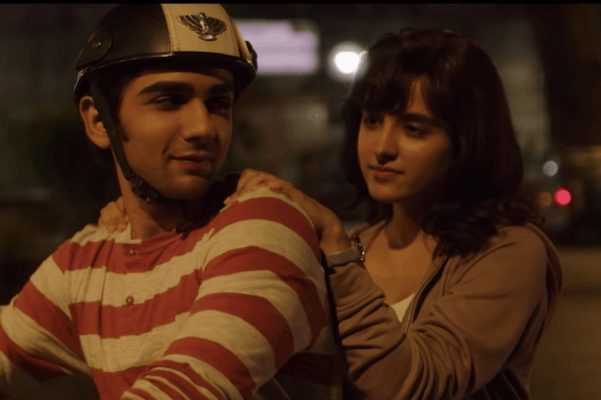When aspiring actor Rumi (Prit Kamani)wants to launch a glittering career that will lead him to Bollywood, he comes into conflict with his mother (Manisha Koirala), who wants him to take over the family cafe that they have been running for generations. Will Rumi follow his dreams or comply with his mother’s wishes?
The main problem with this film is not so much the use of a cliched narrative as its poor execution of such cliches. The central conflict between Rumi’s acting aspirations and his mother’s desire for him to continue the family legacy falters due to its over-reliance on broad comedy in its depiction. Koirala, in particular, overeggs her portrayal of the mother’s disapproval of both Rumi’s apparent decision to turn his back on his heritage as well as his relationship with divorced actress Mallika (Nikita Dutta).
In addition, Rumi’s attempts to carve out his own identity away from his deceased father (Javed Jaffrey), as well as his divided loyalty between his acting career and the family business is also affected by this melodramatic approach, with the inclusion of the father as a comic relief ghostly advisor serving as a particularly grating example. The telegraphing of Rumi’s emotions through the use of music-driven montages, whilst common in Bollywood, further emphasises the film’s overall clunky handling of its character’s internal conflict. Song lyrics such as ‘I may be down on my feet but am light in my heart’ don’t exactly serve as subtle indicators of Rumi’s feelings.
Director/writer Udhwani and co-screenwriter Ishita Moitra‘s shared decision to forego any kind of subtlety is a shame, as it wastes many potential opportunities to explore some interesting issues raised by the plot, such as the stigma of Rumi entering into a relationship with a divorced woman as well as the discrimination faced by the Iranian Parsi community, of which Rumi’s family is a part, in India. In addition, Kamani does his best to provide a level of depth to Rumi, particularly during the scenes where he actively fights against being forced to emulate his late father. However, he is constrained by the limitations of the material that he has to work with.
Ultimately, Maska suffers from its lack of ambition, with any interesting possibility raised by the themes (conflicts of identity, social stigmas, the dark side of showbusiness) immediately sidelined in favour of adhering to a bland narrative structure that feels lifted from countless other films with similar subject matter.
Available now on Netflix.
